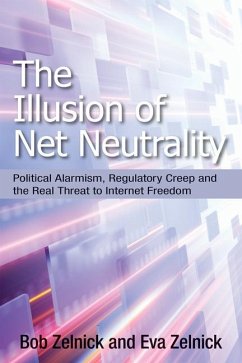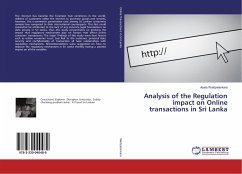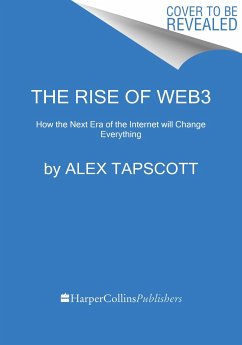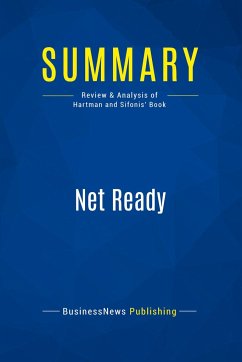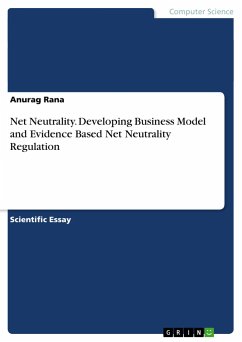
Net Neutrality. Developing Business Model and Evidence Based Net Neutrality Regulation

PAYBACK Punkte
0 °P sammeln!
Scientific Essay from the year 2014 in the subject Computer Science - Internet, New Technologies, , language: English, abstract: Over the past ten years, the debate over "network neutrality" has remained one of the central debates in Internet policy. Governments all over the world have been investigating whether legislative or regulatory action is needed to limit the ability of providers of Internet access services to interfere with the applications, content and services on their networks. Net neutrality comprises two separate non-discrimination commitments. Backward-looking 'net neutrality li...
Scientific Essay from the year 2014 in the subject Computer Science - Internet, New Technologies, , language: English, abstract: Over the past ten years, the debate over "network neutrality" has remained one of the central debates in Internet policy. Governments all over the world have been investigating whether legislative or regulatory action is needed to limit the ability of providers of Internet access services to interfere with the applications, content and services on their networks. Net neutrality comprises two separate non-discrimination commitments. Backward-looking 'net neutrality lite' claims that Internet users should not be disadvantaged due to opaque and invidious practices by their current Internet Service Provider (ISP). Forward-looking 'positive net neutrality' is a principle whereby higher Quality of Service (QoS) for higher prices should be offered on fair, reasonable and non-discriminatory (FRAND) terms to all-comers. Neither extreme in the debate is an optimum solution. There is too much at stake to expect government to supplant the market in providing higher-speed connections, or for the market to continue to deliver without basic policy and regulatory backstops to ensure continued openness. Permitting content discrimination on the Internet will permit much more granular knowledge of what an ISP's customers are doing on the Internet. A co-regulatory regime will ensure oversight and remove the most obvious abuses by fixed and mobile ISPs. Beyond rules that forbid network providers from blocking applications, content and services, non-discrimination rules are a key component of any network neutrality regime. This analytical study provides background on the debate over network neutrality, including the implications for business models going forward that have been attempted and that are currently in play. This article explains for a global policy audience what the regulatory and governance problems and potential solutions are for the issue referred to as 'network neutrality', unpacking its 'lite' and 'heavy' elements. Eschewing technical, economic or legalistic explanations previously tackled elsewhere, it explains that increasing Internet Service Provider (ISP) control over content risks not just differentiated pricing and speed on the Internet. It explains that a co-regulatory regime may ensure regulatory oversight and remove obvious abuses by fixed and mobile ISPs, without preventing innovation, while guarding against government abuse of the censorship opportunities provided by new technologies.




